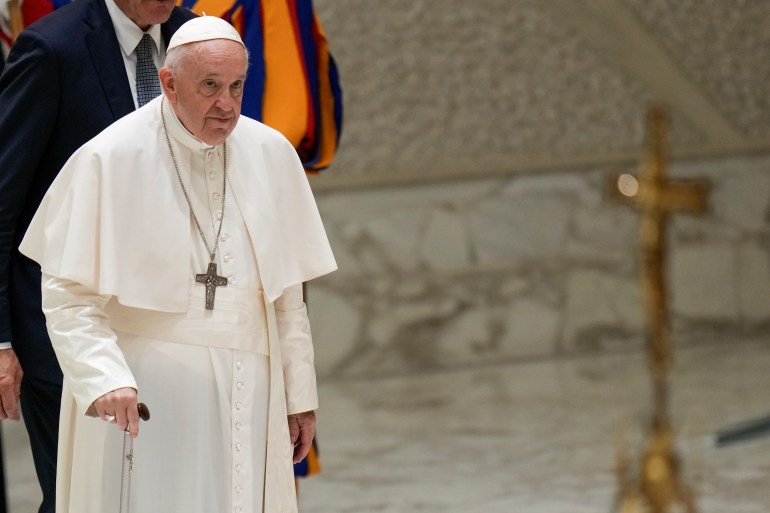For more than a decade, Hungary's Prime Minister Viktor Orban has proved to be a major headache to the EU. Brussels has failed to find a way to effectively sanction his anti-democratic transformation of Hungary, getting bogged down instead in discussions about whether to do so and how. Meanwhile, Orban has succeeded in stalling the EU with tactical games or by blackmailing it with vetoes on various foreign policy or budget issues.
But Orban's regime, which now faces headwinds on all fronts, has now come to a turning point. With his Putin-friendly positioning, the prime minister has isolated Hungary within the EU, even falling out with his closest ally Poland. So far, Brussels has remained unexpectedly tough and has not paid out COVID-19 recovery fund money because of allegations of corruption. Furthermore, a decision on whether to impose sanctions on the country as part of the bloc’s new rule of law mechanism is expected in the coming months. A recent new ruling concluded that Brussels would have the option of cutting off all funds to Hungary — cutting off access to billions that the country needs more urgently than ever.
On top of this, there are problems on the home front. It is already clear that Hungary faces a severe economic crisis and that Orban's costly social model, with which he has kept large sections of society in line, is no longer sustainable. Though the prime minister and his Fidesz party won a historic election victory in April, the current international and domestic situation might spell the beginning of the end of the Orban model.
Failure to condemn the Russian war in Ukraine
Unlike all the other governments in the EU, Orban and his government have yet to unequivocally condemn Russia's war against Ukraine. Moreover, by wildly distorting the facts, Orban seems to believe that it is the West that is actually responsible for the war.
Just a few days ago, he said in a speech that it was perhaps time for Western Europe to understand that the goal should not be to win a war against Russia but to finally achieve peace.
He has repeatedly accused the EU of financing war rather than peace, saying that there are "business circles" at work in the West who are "warmongers," symbolized by US billionaire George Soros. He has also spoken out against the EU sanctions imposed on Russia. The Hungarian government also successfully vetoed an EU attempt to slap sanctions on Patriarch Kirill, the head of the Russian Orthodox Church, who has glorified war crimes.

The leaders of Hungary and Russia are particularly close
Poland distances itself from Hungary
Jaroslaw Kaczynski, Poland's deputy prime minister and the leader of the ruling national-conservative Law and Justice (PiS) party, blew his top a long time ago because of this Putin-friendly attitude, recommending that if his erstwhile staunch ally Orban was blind to Russian war crimes in Ukraine, he should get his eyes tested.
Like in Poland, Orban's Putin-friendly stance could also lead to a realization in Brussels and other individual EU member states, that it is no longer possible to conduct constructive, fruitful negotiations with the Hungarian prime minister, with regard to democracy, rule of law, and fundamental EU values.
That could have consequences for Hungary when the European Commission and the bloc’s member states decide in the coming months on whether funds should be withdrawn from Budapest because it has violated rule of law regulations. So far, the country had been able to rely on the support of certain individual member states. That is no longer certain.

Kaczynski (right) has distanced himself from his erstwhile ally Orban
All EU funds could be cut
The EU triggered a rule of law mechanism procedure against Hungary at the end of April — the first time that it had done so against an EU member state since the mechanism came into force at the start of 2021. The so-called budget conditionality procedure makes it easier to sanction EU members for breaching the rule of law. Whereas in other procedures, member state unanimity is required, this procedure requires the agreement of a qualified 55% majority of members, representing at least 65% of the bloc’s population.
Last week, a new rule of law report assessing the potential amount of financial sanctions against member states was published in Brussels. It concluded that it would be justified and necessary to stop all EU funding to Hungary because its violations of the rule of law are so serious, longstanding, and systematic that it is not certain that even one euro would be safe from corruption and abuse.
Merkel did not show enough political will
Though it was the German MEP Daniel Freund who commissioned the report, it was approved by all major factions in the European Parliament, including the Greens, Social Democrats, Liberals, and even the conservative European People's Party (EPP), which Fidesz belonged to until March 2021.
"This report sends out a strong legal signal that there is nothing standing in the way of cutting funding to Hungary entirely," Freund told DW. "Now, the question is whether the Commission will have the political will to implement it." Freund sounded doubtful as he meted out some harsh criticism of European Commission President Ursula von der Leyen: "Several European Parliament resolutions have accused her of inaction, which is quite exceptional and speaks for itself," he said.

Will Ursula von der Leyen have the political will to sanction Orban (left)
Kim Lane Scheppele, a political scientist at Princeton University in the US and one of the authors of the report, told DW that the EU already had the legal instruments for sanctioning Orban a long time ago. "But the political will was not there and one of the biggest obstacles was former German Chancellor Angela Merkel […]" she said.
"Now, the Commission has to understand that without exception all state institutions are under Orban's political control, and that unless money is taken away from him, he will continue as before."
Social protests break out in Hungary
In a blogpost, Hungarian government spokesperson Zoltan Kovacs commented: "This new round of bullying on the part of the liberal rabble in the European Parliament is simply political spite and only serves their own political agenda on the margins."
Orban in a speech said that Hungary had been attacked in the European Parliament in scenes akin to "intifada and vivisection." He also indirectly accused the Hungarian opposition of treason for taking part in the procedure, pointing out that EU funding was also used for wage increases for Hungarian doctors and teachers.
This harsh rhetoric is not coincidental. The financial stakes are high for Orban and his government. For years, Hungary has implemented generous social and fiscal policies to keep Fidesz voters on board. Before the parliamentary elections in April, the government handed out tax breaks and financial aid. But this has apparently come to an end.
In the past days, the same government hastily withdrew social measures and tax breaks. It seems that drastic austerity measures are likely to follow.
Angry people have already taken to the streets in the first major social protests in years, prompting daily Nepszava newspaper to write: "These are the signs of the fall."
This article was originally written in German

















